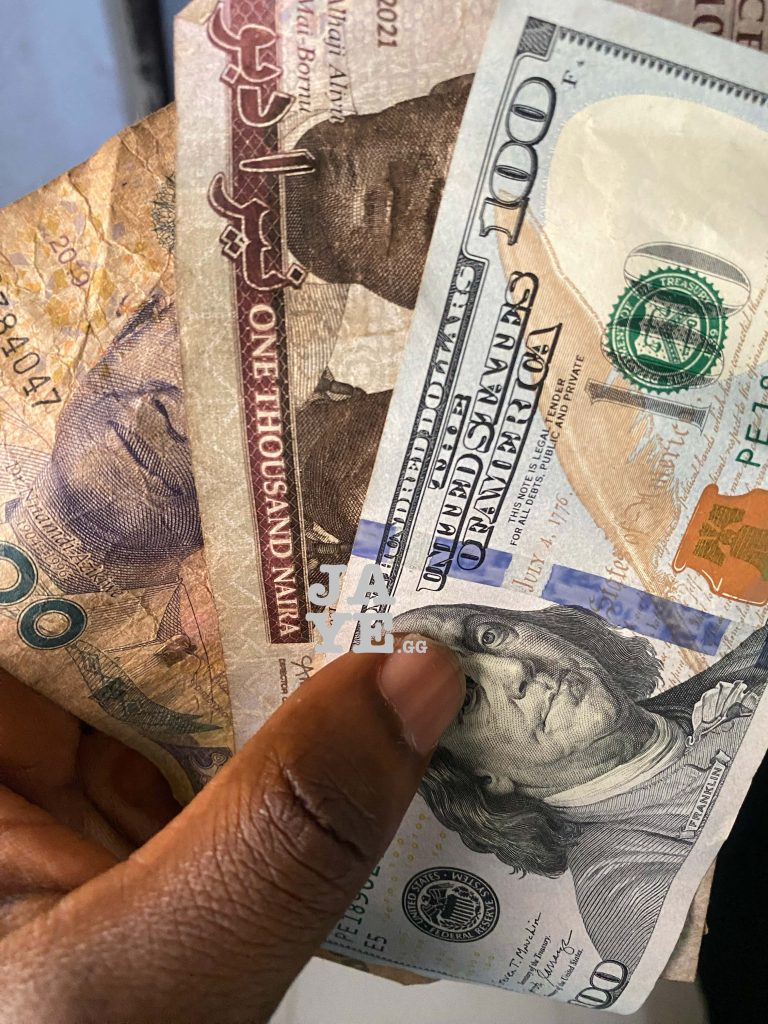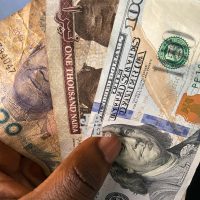Why is the Naira is falling?
Nigeria’s Naira is on the verge of surpassing the 2,000 per dollar mark, having already hit an official record low of 1,520 on the black market. This decline is primarily attributed to the currency’s vulnerability in the unofficial market, where it trades without restrictions.

President Bola Tinubu took steps to eliminate Nigeria’s foreign currency controls in June, aiming to boost transactions through the official market and unify the Naira’s exchange rates. Despite these efforts, the currency’s value has continued to decline. As of the time of this post, the Naira is trading at:
- 1 USD: N1,520
- 1 GBP: N1,884
- 1 EUR: N1,607
- 1 CAD: N1,070
Source: naira rates
The central bank is grappling with a backlog of accumulated forex demand on the official market, compelling individuals and businesses to turn to the black market for dollar transactions. This situation is exacerbated by a decrease in dollar inflows to Nigeria over the past few years, driven by reduced investment and lower exports of crude oil, which constitute over 90% of the country’s export income.
Here are some key reasons why the Naira is falling:
- Inflation:
High inflation rates in Nigeria can erode the purchasing power of the Naira, making it less valuable compared to other currencies. According to the Data available on Central Bank of Nigeria’s (CBN) website Nigeria’s annual inflation rate continued to accelerate to hit a nearly 30-year high of 28.9% in December 2023, up from 28.2% in the prior month.
- External Debt and Debt Servicing:
Nigeria’s external debt and the cost of servicing that debt can impact the country’s ability to maintain a stable currency. If the debt burden is high, it may put pressure on the Naira. According to National Bureau of Statistics Nigeria’s public debt stock which includes external and domestic debt stood at N87.38 trillion (US$113.42 billion) in Q2 2023 from N49.85 trillion (US$ 108.30 billion) in Q1 2023, indicating a growth rate of 75.27% on a quarter-on-quarter basis.
Total external debt stood at N33.25 trillion (US$43.16 billion) in Q2 2023, while total domestic debt was N54.13 trillion (US$70.26 billion).
The share of external debt (in naira value) to total public debt was 38.05% in Q2 2023, while the share of domestic debt (in naira value) to total public debt was 61.95%.
- Oil Dependency:
Nigeria heavily relies on oil exports for revenue. Fluctuations in global oil prices can significantly affect the country’s foreign exchange reserves and, consequently, the value of the Naira. The evolution of the foreign exchange market in Nigeria has been influenced by a number of factors such as the changing pattern of international trade, institutional changes in the economy and structural shifts in production.
- Trade Imbalances:
Simple Explanation to this is persistent trade deficits, where Nigeria imports more than it exports, this can strain foreign exchange reserves and impact the Naira’s value. Because you need foreign currency to import essential materials that runs the economy.
- Foreign Exchange Reserves:
The level of foreign exchange reserves held by the Central Bank of Nigeria (CBN) is crucial. If reserves are low, it may limit the CBN’s ability to stabilize the Naira through interventions in the foreign exchange market.
- Policy Decisions:
Economic policies, particularly those related to foreign exchange management and monetary policy, can impact the Naira’s value. Changes in policies or perceptions about the effectiveness of these policies can influence market sentiment, this can affect investor confidence in emerging market currencies, including the Naira.













